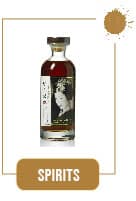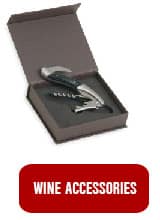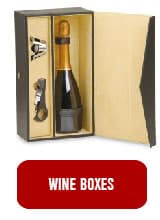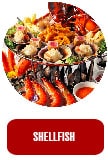No products
list of wineries
-
Château Rayne Vigneau
Production : 96'000 bouteilles ;
Surface : 80 ha ;
Wine variety : 70% Sémillon, 30% Sauvignon;
Best vintages : 2010, 2009, 2007, 2005, 2004, 1989, 1986.
-
Château Rieussec
Production : 80'000 bouteilles ;
Surface : 75 ha ;
Wine variety : 90% Sémillon, 7% Sauvignon, 3% Muscadelle;
Best vintages : 2010, 2009, 2005, 2001, 1988.
-
Château Ripeau
A few hundred meters from Château Cheval Blanc, this Grand Cru Classé in managed with a master hand by Françoise de Wilde and her objective is to constantly improve the quality of the wine.
The wines of Château Ripeau are distinctive for their finesse, their elegance and their very special bouquet.
Production 90'000 bottles ;
Surface 16 ha ;
Wine variety 60% merlot, 30% cabernet franc, 10 % cabernet sauvignon ;
Best vintages 2010, 2009, 2005, 2003, 1990, 1947.
-
Château Rol Valentin
Production 8'000 bottles ;
Surface 4 ha ;
Wine variety 90% merlot, 10% cabernet franc;
Best vintages 2010, 2005, 2000.
-
Château Rouget
Château Rouget, one of the oldest estates in Pomerol, belonged to M. Bayonne until 1804, who was far a long time mayor of the commune.
This fine 16-hectare estate is situated on the gentle slope of the Pomerol plateau near the village of the ancient church.
Château Rouget produces a wine remarkable for its sève, body and sofness and which possesses to the highest degree the characteristic, highly fragant bouquet of the great Pomerols.
Production 80’000 bottles ;
Surface 18 ha ;
Wine variety 85% merlot, 15 % cabernet franc;
Best vintages 2010, 2009, 2000, 1990.
-
Château Roylland
Production 25'000 bottles ;
Surface 5 ha ;
Wine variety 90% merlot, 10% cabernet franc ;
Best vintages 2000, 1998, 1995.
-
Château Saint Lô
The Château Saint Lô is a family owned estate which cellars were installed on a sixteenth century farm, during the Renaissance and the religious wars.
Nowadays, the estate is eighteen hectares (two and a half acres) wide spread along the five historical towns with the right to use the Saint Émilion appellation since the instauration of a decree by King Edward I in the thirteenth century.
-
Château Seguin
The 31-hectare vineyard of Chateau Seguin is planted to an even split of 50% Cabernet Sauvignon and 50% Merlot. The terroir is gravel, clay, and sandy soils. The vineyard is one of the few in the region that is in one large parcel. The vines are in the far west of the appellation.
You can divide the vineyard of Chateau Seguin into two separate sections due to the changes in the terroir. The better parcel is placed close to the chateau and has more gravel in the soils. Vinification takes place in temperature-controlled, stainless steel tanks. The wine is aged in 50% new, French oak barrels for an average of 12 months before bottling.
-
Château Sigalas-Rabaud
Château Sigalas Rabaud clayey-gravel soil produces wines whose bouquet, finesse and breed rank it among the pearls in this great Sauternes casket.
Production : 30'000 bottles ;
Surface : 15 ha ;
Second wine: Lieutenant de Sigalas-Rabaud
Wine variety : 90 % sémillon, 10 % sauvignon;
Best vintages : 2010, 2009, 2005, 2003, 2001, 1986.
-
chateau simone
Château Simone takes its name from one of the previous owners, Madame de Simone.
Today, it is Jean-François Rougier who takes care of the winery, with an area that now extends around 23 hectares of vineyards Clairette, Grenache, Ugni and Muscat for white wines, and Grenache, Mourvèdre, Syrah and Cinsault for reds. . The domain's attachment to tradition means that some somewhat rarer regional grapes are also planted here, such as Manosquin and Castet. Some of the plots are up to 125 years old.
-
Château Smith Haut Lafitte
Château Smith-Haut-Lafitte, due to its long history and its reputation, is ranked among the very first classified grand crus in Graves.
The 72-hectare estate in a single-piece, of which 55 hectares are planted to vines, is situated on a knoll covered with Günz gravel. This helps the grapes to ripen and reach full maturity.
Production : 110’000 bottles ;
Superficie : 45 ha (red), 11 ha (white) ;
Age of the vines: 30 years;
Grape variety_red : 55% cabernet sauvignon, 34% merlot, 10% cabernet franc, 1% petit verdot;
Grape variety_white : 90 % sauvignon blanc, 5 % sauvignon gris, 5 % sémillion;
Best vintages : 2010, 2009, 2005, 2000.
-
Château Sociando Mallet
Since M. Jean Gautreau took over Château Sociando Mallet in 1969, he has done everything to try to restore its original character.
The vineyard has been reconstitued. Today it spreads accross 50 hectares of gravel outcrops lying on a clay bed bordering the river and is planted of Cabernet-Sauvignon, Cabernet franc and Merlot. It is this harmonious blend based on Cabernet-Sauvignon which has mode the prestigious wines of Médoc so famous.
Château Sociando Mallet produces full-bodied wines with a lovely deep dark colour outstanding for its special bouquet dominated, inter alia, by a delicate fragance of raspberrries.
In their youth, the wines tend to be rather virile but they mature remarkably well in the typical Haut-Médoc "old-fashioned" style, that is to say wines for laying down.
Production : 350’000 bottles ;
Surface : 58 ha ;
Second wine : la Demoiselle de Sociando-Mallet;
Age of the vines : 35 to 40 years;
Best vintages : 2005, 2001, 2000, 1990, 1982;
Wine variety : 60% Cabernet Sauvignon, 25% Merlot, 10% Cabernet Franc, 5% Petit Verdot.
100 % in stock
All of our products are avalaible on stock
Quick delivery
Your order will be shipped in 48 hours in a packaging provided for this purpose
Free delivery
Free shipment fees for orders over 1000 CHF (in Switzerland)
Free pickup in Geneva
In order to avoid shipping fees, your order can be picked up directly in our cellars or shop in Geneva
Your fidelity rewarded
2 % off


































